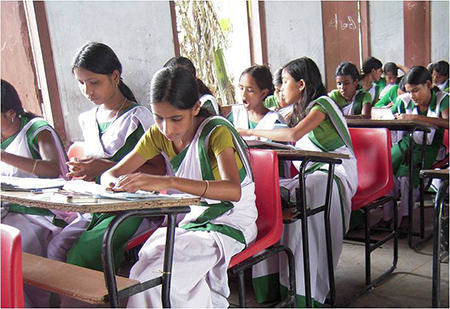
By:
- Heather Buschman
Published Date
By:
- Heather Buschman
Share This:

Debashis Sahoo, assistant professor in the UC San Diego School of Medicine and Jacobs School of Engineering
UC San Diego Researcher Named Semi-Finalist for Women’s Safety XPRIZE
UC San Diego’s Debashis Sahoo is one of 21 semi-finalists in the $1 million Anu & Naveen Jain Women’s Safety XPRIZE, which challenges competitors around the world to develop technological solutions to improve women’s safety in instances of violence or harassment.
According to the competition rules, the winning device must be able to autonomously and inconspicuously trigger an emergency alert and transmit information to a network of community responders—all within 90 seconds and a cost of $40 or less.
The World Health Organization estimates that 35 percent of women globally have faced physical or sexual violence in their lifetime. More than 90 percent of women in New Delhi experienced some form of sexual violence in public spaces in their lifetime, according to the United Nations,
Personal experience motivated Sahoo to enter the competition.

“In many parts of the world, girls don’t leave the house—don’t even go to school—because they are afraid of being attacked.” – Debashis Sahoo
“In many parts of the world, girls don’t leave the house—don’t even go to school—because they are afraid of being attacked,” said Sahoo, an assistant professor in the UC San Diego School of Medicine and Jacobs School of Engineering. “Growing up near a small village in Odisha, India, my own sister didn’t have the same opportunities that I did, just because our parents feared for her safety. Now, I have a 2-year-old daughter of my own and I want her to be safe, and I don’t want her to be limited in any way.”
Sonalisa Pandey, Sahoo’s wife, had similar experience growing up near Sambalpur, Odisha, India, one of the biggest cities in western Odisha.
“Poverty, unemployment, inequality between men and women, racism and related obstacles that delay or block access to justice are important factors that increases women’s feelings of insecurity,” she said.
Sahoo and Pandey submitted a proposal for a wireless communication device they call Shanvi, a Hindi name for Parvati, the goddess of fertility, love, devotion, divine strength and power. Powered by body movements, Shanvi is always charged and doesn’t require batteries. The device is designed to be worn discreetly near the ear, as an earplug or earring. If Shanvi senses a specific change in a woman’s breathing pattern, it immediately alerts a smartphone app that can be used by anyone in the woman’s life—family member, friend or anyone willing to be part of her response network.
“The advantage here is that by simply altering her breathing, a woman could send a distress signal in any situation, even if she can’t speak or use her arms,” Sahoo said.
In April 2018, Sahoo, Pandey and the other semi-finalists will present their prototypes to a panel of judges who will select the winner of the $1 million prize.
Share This:
You May Also Like
Stay in the Know
Keep up with all the latest from UC San Diego. Subscribe to the newsletter today.


